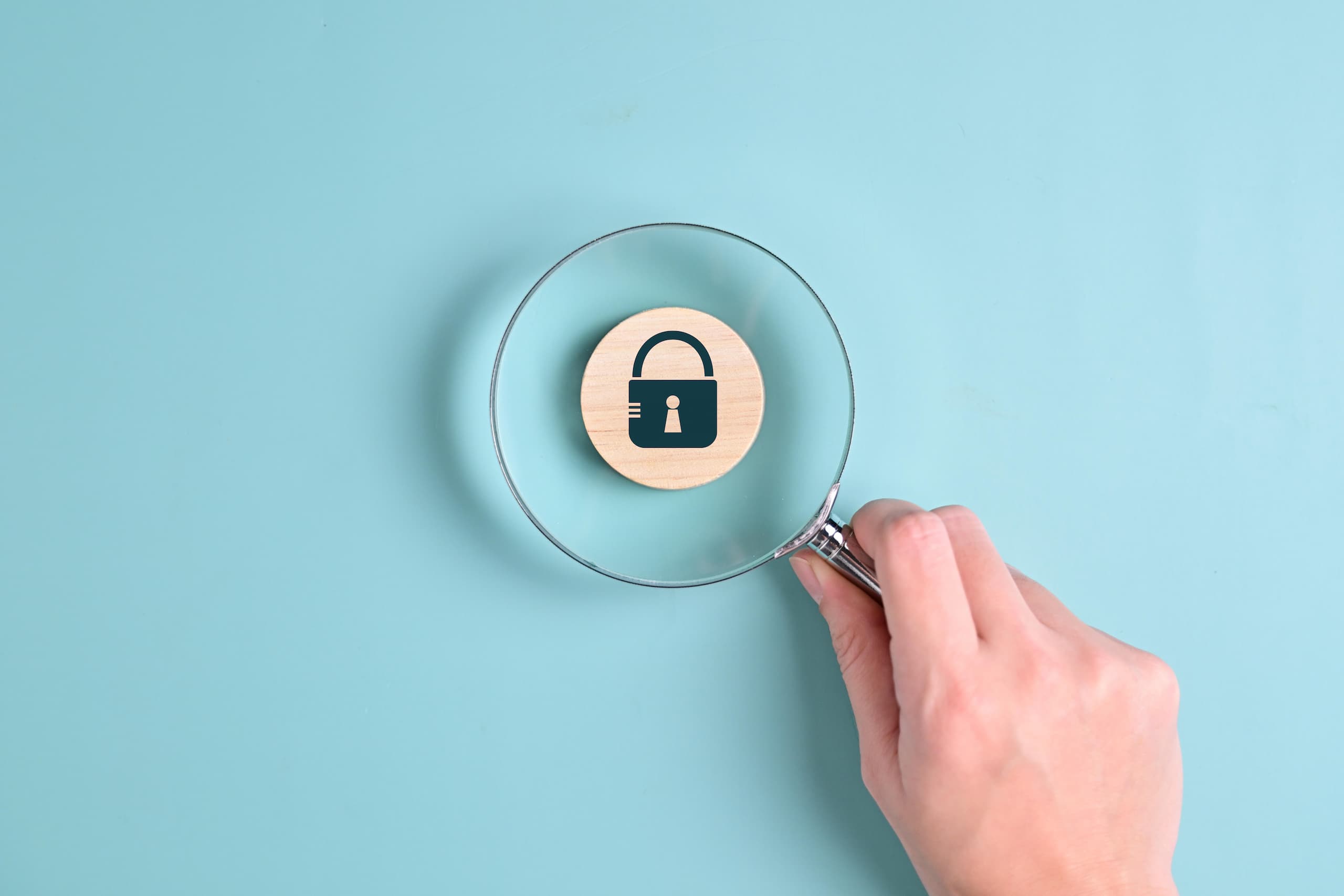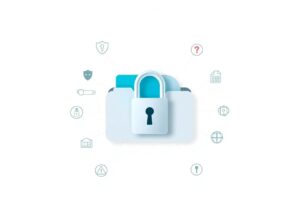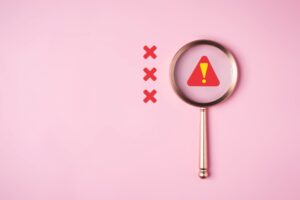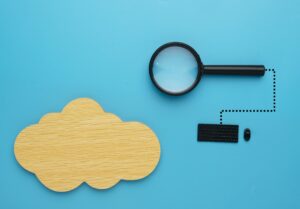
In the digital age, data has become one of the most valuable assets of any company. CRM (Customer Relationship Management) platforms collect large volumes of information about clients, from contact details to purchase histories and personal preferences. This level of information is essential to improve relationships with clients and personalize marketing strategies. However, it also presents a significant challenge: protecting confidential data.
Protecting data within a CRM is essential to maintain client trust and comply with legal regulations. A security breach can have serious consequences, both financially and reputationally. This blog will address how to protect this data, highlighting best practices and security measures to ensure confidential information remains safe.
What is Confidential Data in a CRM?
Confidential data in a CRM encompasses any type of sensitive information that could compromise client privacy and security if it were to fall into the wrong hands. This includes:
- Personal data: names, addresses, phone numbers, and email addresses.
- Financial information: credit card details, bank transactions, or payment histories.
- Interaction history: records of conversations, purchase preferences, complaints, or previous inquiries.
The protection of confidential data is not only an ethical issue but also a legal one. Regulations like the GDPR (General Data Protection Regulation) and CCPA (California Consumer Privacy Act) require companies to take appropriate measures to protect their clients’ information. Failure to comply with these regulations can result in severe penalties.
Benefits of Protecting Data on CRM Platforms
1. Strengthening Client Trust
One of the main benefits of ensuring the protection of confidential data is strengthening client trust. Consumers are increasingly aware of the importance of data security and want to know that the companies they interact with are taking steps to protect their information.
For example, if a client knows their data is secure in your CRM system, they are more likely to share additional information that can help you offer them a more personalized service. A PwC report indicates that 87% of consumers would stop doing business with a company if they experience a data breach. This highlights the importance of security to maintain long-term relationships with clients.
2. Regulatory Compliance
Data protection laws, such as the GDPR in Europe and the CCPA in the United States, require companies to take strict measures to protect their clients’ information. Complying with these regulations not only avoids penalties but also shows that your company cares about data security.
The GDPR imposes fines of up to 4% of annual revenue for companies that do not meet its data protection requirements, which could mean millions of euros in penalties. By implementing good data protection practices in your CRM, you not only protect yourself from these penalties, but you also foster a security culture within your organization.
3. Risk and Cost Reduction
The protection of confidential data also helps reduce financial risks. A data breach can lead to significant economic losses due to lawsuits, regulatory penalties, and loss of clients. Additionally, the cost of repairing damages caused by a data breach is usually higher than investing in preventive measures.
According to the IBM report, the average cost of a data breach in 2023 was $4.45 million. This cost includes repairing affected infrastructure, notifying clients, and dealing with regulatory penalties. By investing in data protection, you can avoid such losses and ensure business continuity.
Key Measures to Protect Confidential Data in a CRM
1. Use of Data Encryption
One of the most effective ways to protect confidential data in a CRM is through encryption. Encryption converts data into an unreadable format for any unauthorized person, meaning that even if the data is intercepted, it cannot be deciphered without the correct key.
Modern CRM platforms, such as Salesforce and HubSpot, offer advanced encryption for both data at rest and data in transit. This ensures that information is protected both while stored and during network transfers. Encryption is an essential barrier to prevent hackers from accessing confidential data.
2. Multi-Factor Authentication (MFA)
Multi-factor authentication (MFA) adds another layer of security by requiring more than one verification method to access CRM data. Instead of relying solely on a password, MFA requires a second factor, like a code sent to a mobile device or a fingerprint.
Implementing MFA in your CRM platform ensures that even if a password is compromised, the data will still be protected. According to Microsoft, implementing MFA can prevent 99.9% of security attacks targeting accounts.
3. Role-Based Access Control
Role-based access control (RBAC) is a practice that limits access to confidential data according to the user’s role within the organization. This means that not all employees need access to all data, and only those who truly need it can view sensitive information.
For example, the marketing team may need access to contact information and client preferences, but not necessarily to financial information. By implementing RBAC, you can ensure that data is only accessible to the right people, minimizing the risk of information leaks.
4. Regular Security Audits
Conducting security audits regularly is essential to identify possible vulnerabilities in the protection of confidential data. These audits help detect problems before they become real risks, ensuring that security measures are up-to-date and effective.
Audits may include reviewing access permissions, the effectiveness of encryption, and the implementation of security policies. A well-executed internal or external audit can help identify weak points and take corrective actions before an incident occurs.
5. Employee Training and Awareness
One of the main causes of data breaches is human error. It is crucial that all employees using the CRM receive training on best security practices and understand the importance of following established protocols.
Additionally, awareness of phishing threats and secure password use is essential to reduce the risk of breaches. A Verizon study showed that 85% of data breaches involved a human element, highlighting the importance of continuous training.
Use Cases and Examples of Best Practices in CRM Data Protection
1. Case Study: Salesforce and the Implementation of MFA
Salesforce is one of the most widely used CRM platforms globally and a leader in security measures. In 2021, Salesforce announced the mandatory use of multifactor authentication (MFA) for all users, adding another layer of protection for accessing confidential data.
This measure helped significantly reduce the risk of unauthorized access to the platform, strengthening data security for millions of users worldwide.
2. Case Study: HubSpot and End-to-End Encryption
Another CRM platform that has implemented best practices for confidential data protection is HubSpot. By using advanced encryption for both data at rest and data in transit, HubSpot ensures that all information managed through its platform is protected against unauthorized access and security breaches.
Conclusion
The protection of confidential data on CRM platforms is not only a legal obligation but also an ethical responsibility toward your clients. Implementing measures such as encryption, multifactor authentication, and role-based access control are essential steps to ensure data is always secure.
By following these best practices, you will not only protect your company from potential sanctions and breaches, but you will also strengthen client trust and improve the operational efficiency of your business. Data security must be a priority, and with the right tools, you can ensure that confidential information is always in good hands.






No comment yet, add your voice below!